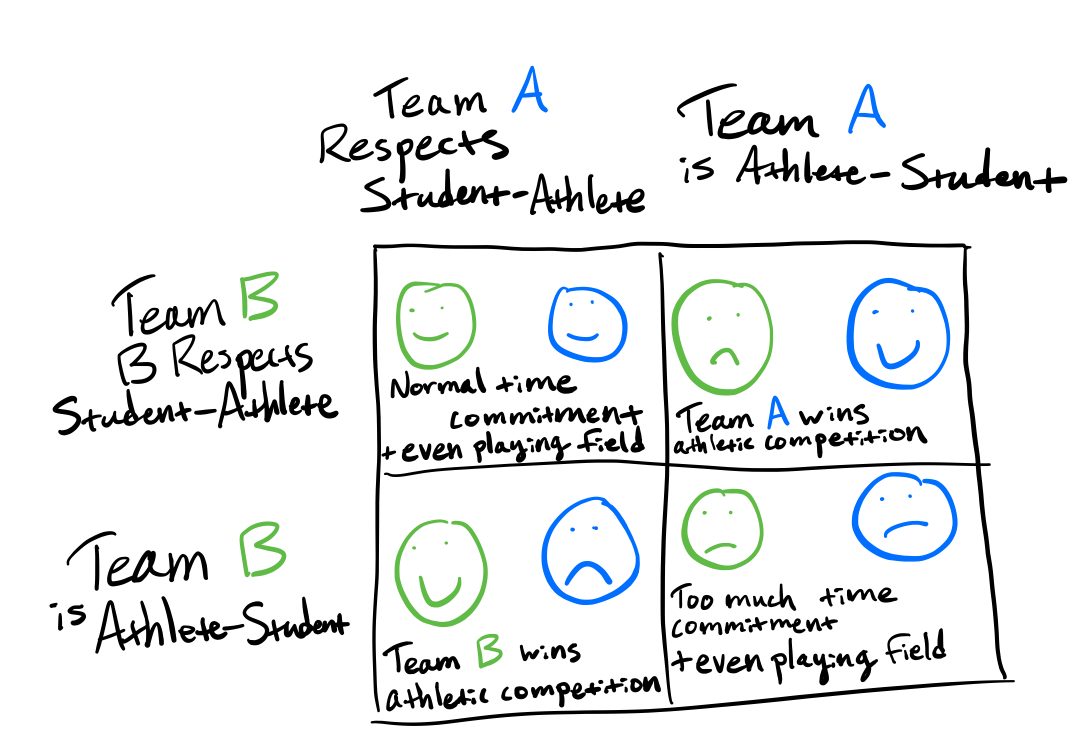Academics and Athletics
Time and time again throughout my college career, I’ve thought to myself
“Why am I out here rowing?? I’m falling behind where I could be if I was studying and learning and making cool stuff instead!”
Implicitly, I believed in a false dichotomy, a spectrum fallacy, an inaccurate mental map representing academics and athletics as engaged in a zero-sum game - to get better at one would require becoming worse at the other. I was wrong. And today, I hope to show you why.
Biology
To investigate how athletics could complement and assist with academics, I did two Deep Research queries, one with ChatGPT and one with Gemini.
In both reports, a protein named Brain-Derived Neurotrophic Factor (BDNF) is identified as a key factor responsible for the physiological benefits of exercise on brain functioning. Exercise, in particular cardio, has been shown to significantly increase BDNF synthesis in the brain. Interestingly, this effect may be more pronounced in men than women. BDNF supports the survival of existing neurons and encourages growth and differentiation of new neurons. Intuitively, I know that I feel better after working out. I also know that if I don’t exercise for a few days I become lethargic and generally unproductive.
Parkinson’s law
Parkinson’s law states that “work expands so as to fill the time available for its completion”. Regularly scheduled practices (and to some extent study methods like Pomodoro) act as unavoidable deadlines and chunks of time you know are off-limits in advance. This theory is in accordance with the observed phenomena that out of season athletes feel like they get less done! “If you want something done, ask a busy person” - Ben Franklin (?).
Right tool for the job
Gemini’s report included an interesting table explaining how one might utilize different types of exercise for different goals. For example, as we saw, cardio increases the production of BDNF. Therefore, you may want to go for a run before a study session during which your goals are to learn and ingest information into memory. Apparently (but this should be more thoroughly checked), strength training is an antidote to procrastination as it hightens executive function. And mind-body exercises like yoga or tai chi strengthen reasoning, attention, and problem-solving.
Not too long ago, I chatted over dinner with a friend about performance enhancing substances like caffeine. His quote struck me: “everything is a tradeoff”. You get to use the future now, but you’ll pay for it later. For an hour-long test with nothing else going on later that day, having the ability to use stimulants is awesome. It’s an option. And usually, the more options the better.
Just like being judicious with stimulants, knowing how certain foods will affect your body and energy levels is also a superpower. We talked about glycemic index (GI) and how he avoids carbs at dinnertime because they have a high GI.
All these ideas center around one meta-idea: use the right tool for the job. And the winds of evidence point us towards the realization that exercise is a tool, a multifaceted tool, that is useful in doing the job of being a college student.
Diminishing returns of exercise
While there is strong evidence that some exercise is important and beneficial, there must be a point beyond which exercise is harmful. Imagine someone working out eight hours a day - not much time to do other things. Unfortunately, I agree with my uncle who said collegiate athletics’ “competitiveness leads to a constant escalation of the amount of time spent on workouts. We’re not very good at controlling that escalation and need to be more conscious of that.”
In game theory terms, I think this represents the Prisoner’s Dilemma. At Williams, a D3 NESCAC school, we have an emphasis on being a ‘student-athlete’ where the student comes first. Meaning that academics should always have priority over athletics. However, I don’t think this is internalized enough by some of my teammates and possibly coaches. This is my attempt at representing the situation (where Athlete-Student means athletics is being prioritized over academics):

So if everyone had the same student-athlete time commitment for athletics, the student-athlete vision would be possible. And there are NESCAC rules for this like no mandatory practices out of season. However, in practice (haha), there are de-facto mandatory practices during the offseason. Everyone who wants to win has an incentive to push for more time practicing - quality time spent doing sport seems to be well-correlated with performance in sport. I think to solve this, coaches need an incentive for academic performance to balance the tug-of-war that currently appears one-sided.